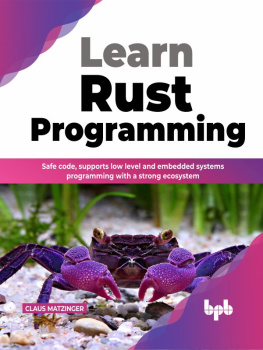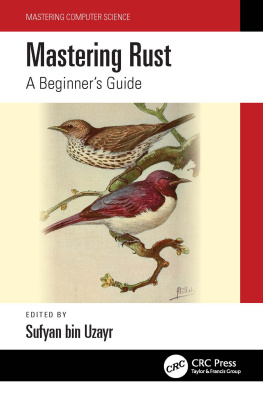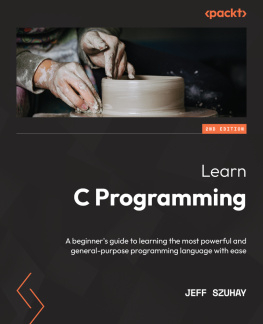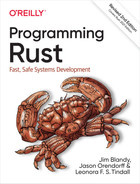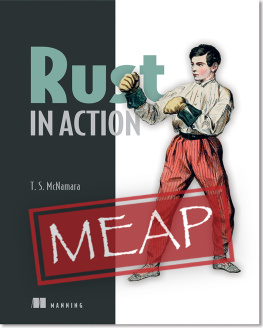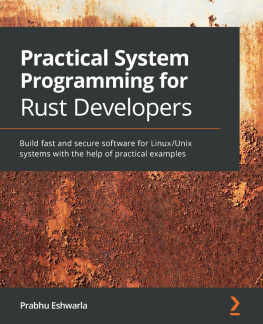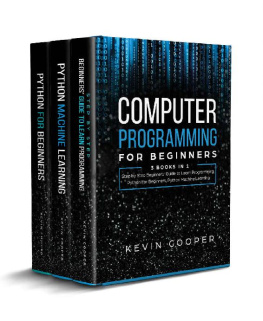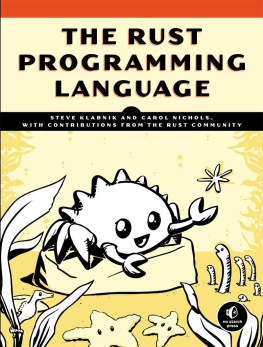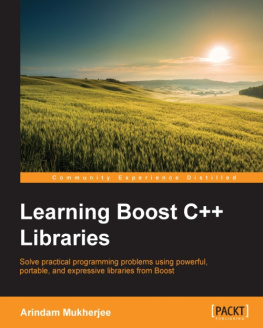Claus Matzinger - Learn Rust Programming: Safe Code, Supports Low Level and Embedded Systems Programming with a Strong Ecosystem
Here you can read online Claus Matzinger - Learn Rust Programming: Safe Code, Supports Low Level and Embedded Systems Programming with a Strong Ecosystem full text of the book (entire story) in english for free. Download pdf and epub, get meaning, cover and reviews about this ebook. year: 2022, publisher: BPB Publications, genre: Computer. Description of the work, (preface) as well as reviews are available. Best literature library LitArk.com created for fans of good reading and offers a wide selection of genres:
Romance novel
Science fiction
Adventure
Detective
Science
History
Home and family
Prose
Art
Politics
Computer
Non-fiction
Religion
Business
Children
Humor
Choose a favorite category and find really read worthwhile books. Enjoy immersion in the world of imagination, feel the emotions of the characters or learn something new for yourself, make an fascinating discovery.
- Book:Learn Rust Programming: Safe Code, Supports Low Level and Embedded Systems Programming with a Strong Ecosystem
- Author:
- Publisher:BPB Publications
- Genre:
- Year:2022
- Rating:4 / 5
- Favourites:Add to favourites
- Your mark:
Learn Rust Programming: Safe Code, Supports Low Level and Embedded Systems Programming with a Strong Ecosystem: summary, description and annotation
We offer to read an annotation, description, summary or preface (depends on what the author of the book "Learn Rust Programming: Safe Code, Supports Low Level and Embedded Systems Programming with a Strong Ecosystem" wrote himself). If you haven't found the necessary information about the book — write in the comments, we will try to find it.
Become a Rustacean and a successful software engineer
Key Features
Introduces Rusts fundamentals, key concepts, syntax, toolkit, and frameworks
Extensive examples demonstrating dependable, efficient, and understandable code for producing maintainable software
Includes coding challenges and useful exercises to make learning to code fun
Description
Learn Rust Programming assists every programmer in learning Rust and filling in the gaps left by other programming languages in developing full-proof apps and systems. This book covers every vital feature a programmer requires, including basic principles, syntax, clean coding, application testing, popular libraries, and numerous examples and small programmes.
As a first step in understanding the language, this book tries to present a profoundly practical method for overcoming this learning curve. Using engaging coding challenges and practical projects, the reader can anticipate learning programming fundamentals, developing advanced concurrent code, contributing to open-source projects, and ultimately pursuing a career in Rust. In addition to programming, this book covers the fundamentals of software engineering to develop maintainable and well-documented projects with the help of built-in tools.
As novice software engineers, readers of this book will be able to develop excellent software independently as part of a bigger team. Using Rust, they can join one of the numerous crypto, gaming, IoT, or cloud infrastructure organizations to mark their success of knowledge.
What you will learn
Learn Rusts syntax, variables, control structures, enums, and traits.
Write unit tests, integration tests, and documentation for the software codes.
Use data structures, commands for running cargo, and any third-party libraries.
Create durable and maintainable programmes by structuring code correctly.
Use generics, lifetimes, I/O runtimes, concurrency, and futures in your code.
Developing declarative macros and taking advantage of heap memory.
Who this book is for
This book interests all kinds of sound programmers who want their applications to be efficient and reliable over time. It also attracts novices and recent graduates who wish to become young programmers with a solid grasp of the programming language of the 21st century.
Table of Contents
1. Building the basics
2. Controlling the program flow
3. Organizing for reuse
4. Interfacing with code and errors
5. Borrowing ownership with scopes
6. Working with collections
7. Reading input and writing output
8. Using crates with cargo
9. Testing what you build
10. Documenting what you build
11. Generating code with macros
12. Using heap memory effectively
13. Running concurrent code
14. Writing async code
15. Working with generics
16. Calling unsafe and foreign functions
Claus Matzinger: author's other books
Who wrote Learn Rust Programming: Safe Code, Supports Low Level and Embedded Systems Programming with a Strong Ecosystem? Find out the surname, the name of the author of the book and a list of all author's works by series.

